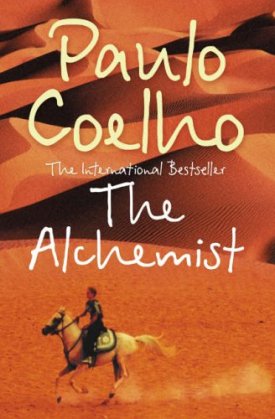'The Alchemist' Still Resonates 26 Years Later
By Jaclyn Bauer in Arts & Entertainment on Sep 16, 2014 3:20PM
 Paulo Coelho’s The Alchemist marks its 26th anniversary with a special re-release, featuring a new introduction by Coelho. The author discusses his motivation for writing the novel and his initial struggles in publishing it.
Paulo Coelho’s The Alchemist marks its 26th anniversary with a special re-release, featuring a new introduction by Coelho. The author discusses his motivation for writing the novel and his initial struggles in publishing it.
When first published in Brazil in 1988, The Alchemist was a total flop. Although the original publisher dropped the book and the author after publication, Coelho claims he did not lose heart or faith in The Alchemist at that point. Coelho describes his journey toward publication as one parallel to his protagonist Santiago’s: a journey of his own “Personal Legend.” It wasn't until The Alchemist was acquired by HarperCollins and released in the United States in 1994 that it became a New York Times Best Seller and translated into 56 languages, as of 2012. Over a quarter century and 65 million copies later, the book still resonates with readers worldwide.
A book about passions, “Personal Legends,” inner peace and universal tolerance, The Alchemist covers a range of topics peculiarly pertinent to all generations, races, religions and human beings independent of any labels that try to claim them. Santiago is a Spanish shepherd who has a dream about hidden treasure that catapults him on a journey to the pyramids of Egypt and back. Navigating his way across a desert, holding multiple jobs, falling in love and finding all variety of friends along the way, Santiago’s adventure is an allegorical tale of self-discovery and dreaming.
The Alchemist has, however, incurred a fair amount of reproach, and not without good reason. Critics claim the book is poorly written, trite and filled with cliché, and that its message, rather than being artfully delivered, hits the reader over the head with its overtness. While it’s true the novel is neither melodic poetry nor poetic prose, it is more likely a fault of translation—not of any one translator in particular, but of the nature of altering the language of delivery itself. While the story is more of a parable than anything else, the message that Coelho attempts to deliver is one of pervasive importance—a message that contemporary society can at times push aside. In an age when many universities are leaning toward career-oriented education and devaluing the liberal arts, and dreams are still being deflated by the need to survive, a novel like The Alchemist proves, despite its flaws, to be an important work of literature.
The Alchemist, a previous Chicago Public Library "One Book, One Chicago" selection, is a quick read worth filtering through the hype to form your own opinion.